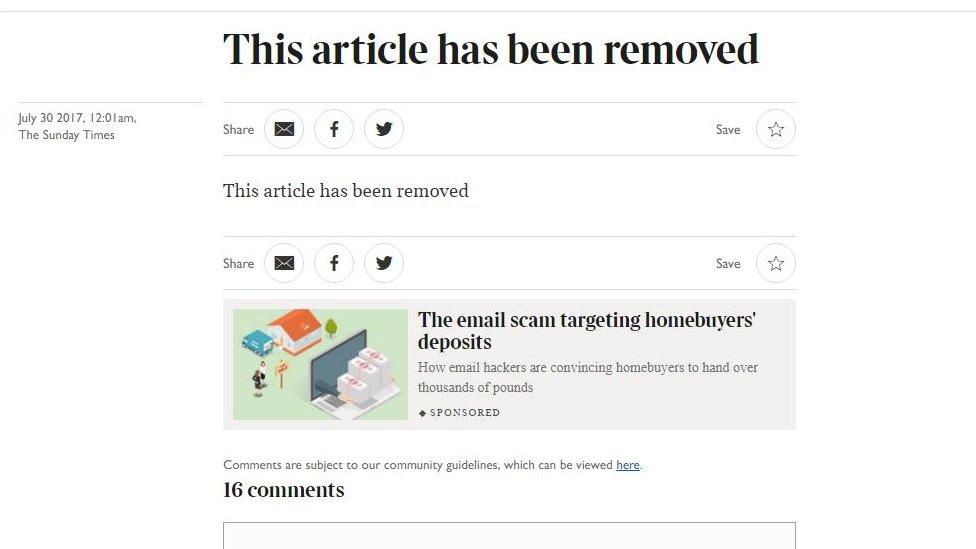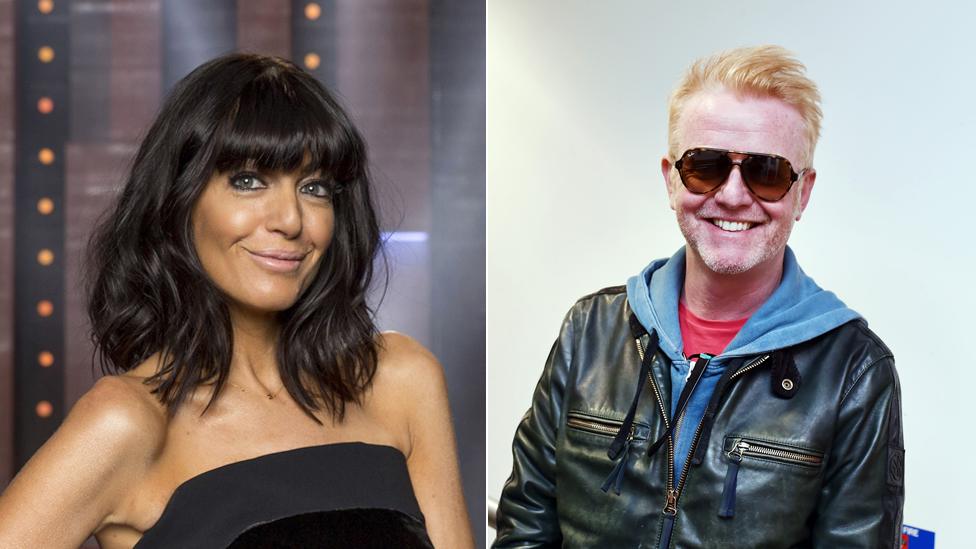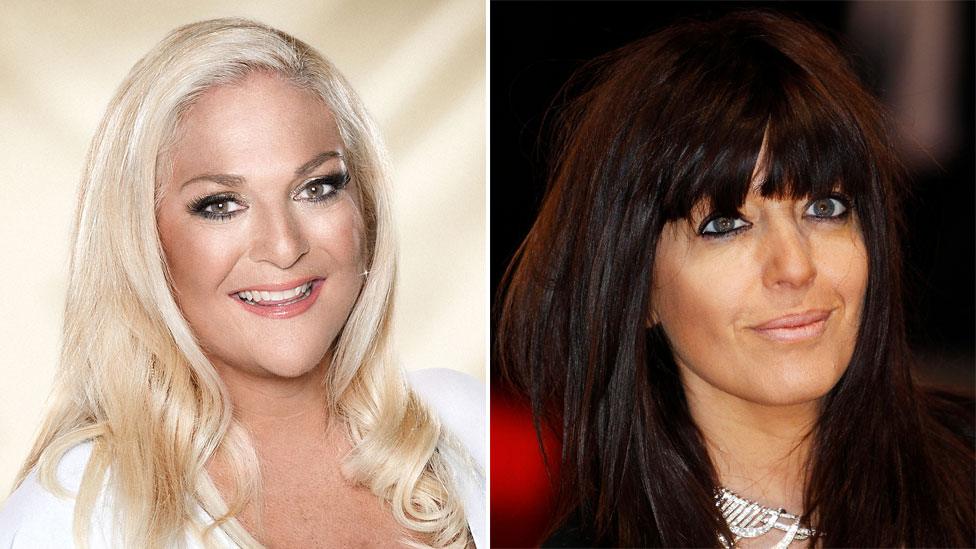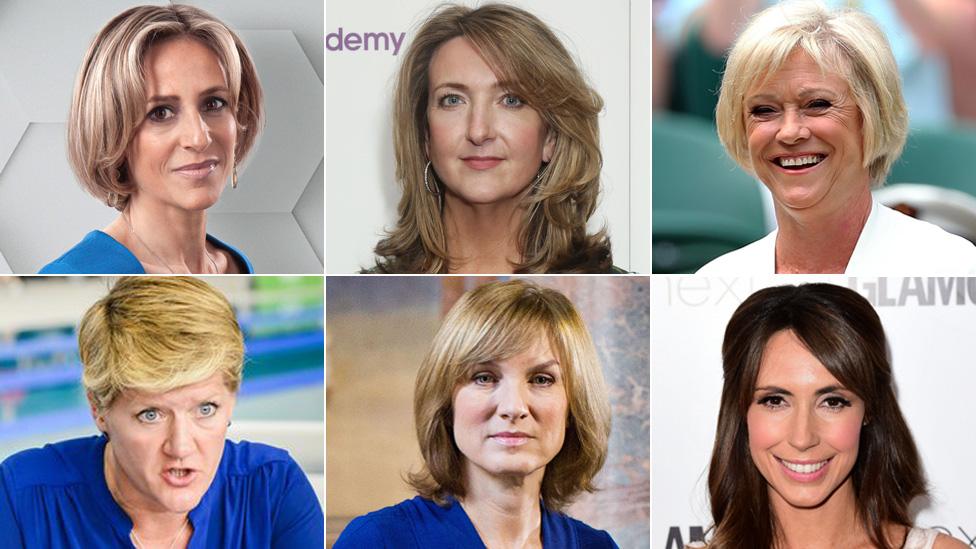Sunday Times anti-Semitism row: Vanessa Feltz 'upset' over column
- Published
Vanessa Feltz describes the Sunday Times column as "blatant racism"
Vanessa Feltz has said she felt "extremely upset" by a Sunday Times column which suggested she and Claudia Winkleman earned high salaries because they were Jewish.
The BBC presenter described the piece by Kevin Myers as "so obviously racist it's surprisingly hurtful".
She also questioned how no-one at the paper appeared to spot the article.
Editor Martin Ivens said the piece, which was in the Irish edition and online, should not have been published.
Speaking on BBC Radio London where she presents the breakfast show, Feltz said: "I would have thought after all these years I'd be immune or used to it, but that's not at all how I felt. I felt extremely upset.
"The apologies are all very well but how did it end up in the paper in the first place?" she added.
Feltz revealed Ivens had personally rung her to apologise and had told the presenter he was "horrified".
She said she told the editor that she could not understand how the article had been allowed to be published when it has to go through "layers of command".

The article has been removed following outcry at its content
The column, titled "Sorry, ladies - equal pay has to be earned", follows criticism of the BBC, after it was revealed two-thirds of its stars earning more than £150,000 are male.
Commenting that two of the best-paid female presenters, Winkleman and Feltz, were Jewish, Myers wrote: "Good for them.
"Jews are not generally noted for their insistence on selling their talent for the lowest possible price, which is the most useful measure there is of inveterate, lost-with-all-hands stupidity."
Times readers - who must pay a subscription to access online content - commented on the original article to express their disgust.
"The proud anti-Semitism in this column is nothing short of disgraceful. Myers must go and so must the editor who approved this piece," Alan Simpson wrote.

Analysis
By Amol Rajan, BBC media editor
The obvious question readers of Kevin Myers's bizarre column will ask is: "How on earth was it published?"
The truth is in newspapers where sub-editing resources have been cut and cut in recent years idiocy will sometimes slip through.
I used to be comment editor at a national title. The usual process is: you talk to the writer, distil the idea, discuss it with your editor, tell the writer to go ahead, and then when the copy comes in, you check for howlers, sharpen it up, and stick a headline on.
That should then be read by the paper's editor.
It's no excuse, of course, but the fact it is July - when staffing levels are low despite the evidence that historically it's an exceptionally busy month - means such mistakes are more likely to slip through.
And the fact that it was in the Irish edition of the Sunday Times will help deflect responsibility from Martin Ivens, editor of the main edition, who was forced to apologise after a cartoon by Gerald Scarfe early in his tenure led to complaints of anti-Semitism.
It is notable that Frank Fitzgibbon, the editor of the Irish edition, said in his statement that he "takes full responsibility for this error of judgement".
Vanessa Feltz is right to be appalled. Myers's column was not only misogynistic and anti-Semitic, but intellectually incoherent too.

The article was taken down following anger on social media and a formal complaint from the Campaign Against Anti-Semitism, external to press regulator Ipso.
Ivens offered the paper's "sincere apology, both for the remarks and the error of judgement that led to publication".
Frank Fitzgibbon, editor of the Sunday Times Ireland, said he took "full responsibility", adding: "This newspaper abhors anti-Semitism and did not intend to cause offence to Jewish people."
A News UK spokesman said the column included "unacceptable comments both to Jewish people and to women in the workplace".
'Never have equal pay'
In the article, Myers also argued that male presenters might earn more because they "work harder, get sick less frequently and seldom get pregnant".
The Sunday Times has said the columnist "will not write again" for the newspaper.
Former BBC presenter Sue MacGregor has said there will never be equal pay between genders at the BBC "until men have babies".
In an interview on the Today programme, which she hosted from 1984 until 2002, she said "women always end up doing most of the work" with children.
Former Today presenter Sue MacGregor says gender pay parity is not possible until "men have babies"
The BBC's annual report showed that the show's male presenters John Humphrys and Nick Robinson were paid more than £600,000 and £250,000 respectively.
Its top-earning female presenter Mishal Husain was paid more than £200,000, however colleague Sarah Montague did not appear on the list of highly paid staff.
Speaking about how the Today programme has changed, MacGregor said: "My view is that there will never be totally equal pay for women until men have babies.
"They will never have equal pay because there will be times when they have to leave.
"There are extraordinary people who come back to work after two weeks or four weeks, but mostly and rightly, their attention is taken by this new little thing in their lives."
- Published20 July 2017

- Published30 July 2017

- Published23 July 2017
